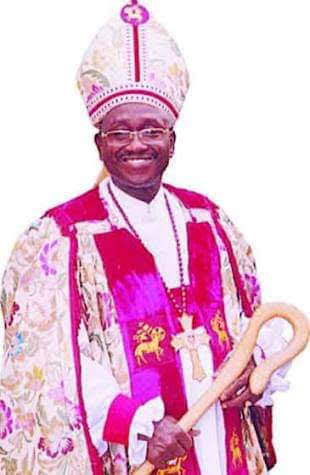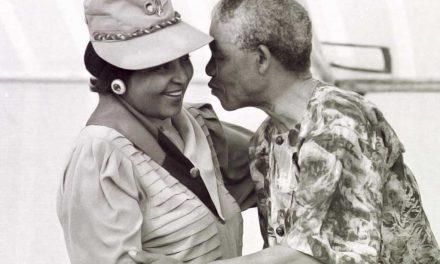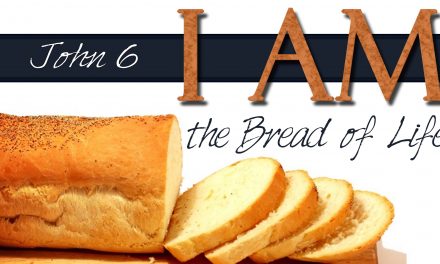His Eminence Dr Sunday Ola Makinde, a product of ‘Asaba Ordinis’ and the last episcopal nominee of the Patriarch of Nigerian Methodist Episcopacy, His Pre-Eminence Professor Bolaji Idowu to retire, points us to Methodist corporate episkope not just as hierarchical structure but as a missional theology, practice and oversight. ‘Asaba Ordinis’ is based on cultural meaning and way of approaching faith and expressing it through different creeds and liturgical customs. The underlying principle and theology about ‘Asaba Ordinis’ is to renew the study, the worship, the liturgy and development in the Nigerian Methodist understanding and practice of episcopacy initiated by Patriarch Bolaji Idowu, a theologian, a liturgist, and an ecclesiologist.
‘Asaba Ordinis’ is about a contextual connexional corporate ministry, spirituality, evangelism, oversight, and ecclesiology shaped by the missio-pastoral ministry of Jesus Christ. ‘Asaba Ordinis’ is not a monarchical decree or practice on the ministry and life of church and people but an indigenous collaborative, corporate renewal and examination of the place of church leaders in the world of the twentieth century. ‘Asaba Ordinis’ clarify the theological and missional significance of corporate episkope and its contribution to contemporary understandings of church, priesthood, evangelism, and leadership in the church. ‘Asaba Ordinis’ shaped by the apostolic tradition emphasises the role of the bishop invested with a great deal of theological significance in Orthodox thinking. Among missional concepts that makes ‘Asaba Ordinis’ stand out include: ‘the bishop as bearer of the Apostolic tradition, the bishop as head and president of the Eucharistic community, the bishop as head and representative of a local community, and the bishop as link between Christian communities.’
His Eminence Makinde at 77, 7 years after his retirement re-echoes Patriarch Bolaji Idowu’s vision and theology behind Methodist corporate episcopacy, ‘Asaba Ordinis,’ a genuine, authentic Christian spirituality for the integration of Methodist Christian faith with whole of life and community. Patriarch Bolaji Idowu explained that Nigerian Methodism ‘came to being first as a missionary church – or churches-within-colonialism.’ According to him, ‘with the Gospel, we were handed intact the organizational pattern of British Methodism … The time has now come when we have to consider, or reconsider, our set-up in relation to restoring the years that the locust has eaten.’ Patriarch Idowu through his concept of indigenization of Nigerian Methodism and 1974 Asaba Retreat called for the ‘reordering the life of the church in such a way as to enhance effective and adequate ministration to the needs of the people in their native context.’ His Eminence Makinde at 77, 7 years after retirement points us to ‘Asaba Ordinis’ corporate episkope with a new and missional lens of leadership and ecumenism.
His Eminence Makinde at 77, 7 years after his retirement summons us to the pioneer thinking of the Church, especially on church and leadership renewal. In the words of Patriarch Bolaji Idowu, ‘it is only when the leadership of the Church knows it own mind that it can lead effectively.’
His Eminence Makinde was born on Sunday10th October, 1943 to Papa Allen Olatunji Makinde, a Society steward of Age Igbo-Elerin and Babasale Onigbagbo Igbo-Elerin and Mama Alice Mopelola Makinde, a class leader till death. His Eminence Makinde went to Primary and Secondary Modern school Igbo-Elerin and Wesley College Elekuro Ibadan, 1967 to1969. His Eminence Makinde was a teacher Catechist under Rev Nathaniel.O.Salako the second President of Conference. Rev Salako handed His Eminence Makinde over to Bishop Olusola Orekoya, the Methodist pioneer Bishop of Ibadan diocese through Bishop Stephen Olayemi Olaoye who brought His Eminence Makinde into the Methodist ministry. In 1971, His Eminence Makinde gained admission to Immanuel College, Ibadan and graduated as the best Student in his set.
His Eminence Makinde served in Ikole-Ekiti and Yaba. He served in Olowogbowo Methodist Cathedral under Bishop Geofery Bamgbose. His Eminence Makinde got married to Mrs Elizabeth Abimbola Makinde in 1974 at Agbeni Methodist Cathedral, Ibadan. Rev Orekoya joined them together and the preacher was Bishop Bamgbose. The marriage is blessed with children and many grandchildren.
In 1982, Patriarch Bolaji Idowu found a World Council of Churches scholarship for His Eminence Makinde for his doctorate degree in the United State of America. His Eminence Makinde was elected a Methodist bishop in 1984 at the famous Otukpo Conference by Patriarch Bolaji Idowu as new Patriarch’s Chaplain and Bishop of Tinubu. His Eminence Makinde served His Eminence Mbang loyally and faithfully as Chaplain for 9 years before he was translated to establish the Diocese of Abuja which was then just a One Circuit and 2 Section churches.
His Eminence Makinde served as the Federal Capital Territory (FCT) Christian Association of Nigeria (CAN) Chairman and Chairman Christian Pilgrims Board of FCT under President Olusegun Obasanjo. During His Eminence Makinde’s tenure at the Diocese of Abuja, God used him to complete the Methodist Cathedral of Unity and the Archbishop’s house. He later became the pioneer Methodist Bishop and Methodist Archbishop of Abuja with three dioceses. His Eminence Makinde was translated to Lagos by His Eminence Mbang where he provided leadership for the building of the new Wesley Cathedral, Olowogbowo, Lagos. The building was dedicated when His Eminence Makinde became the second Prelate, Methodist Church Nigeria. His Eminence Makinde was elected the second Prelate of the church in 2006 at Uyo Conference. He used the new Constitution to guide the Church coupled with the Repositioning Documents of the Church with Archbishop Opoko as Secretary of Conference and Bishop Sunday Onuoha as Bishop of Evangelism. His Eminence Makinde was awarded Commander Order of Niger (CON) by President Shehu Yar Adua Government.
In June 2010, at the All Partners Consultations (APC) held in Britannia Hotel, London, His Eminence Makinde and a former President and General Secretary of the Methodist Church, Britain, the Rev Dr Martyn Atkins met and agreed on behalf of the two Conferences to the need for a Chaplain for the Nigerian Methodists in the UK. The Consultation considered how the Methodist Church in Britain might explore with partners the best structure through which future mission partners might develop. This developnent gave birth to the emergence of the Nigerian Methodist Chaplaincy, United Kingdom in 2013. At the age of 70, His Eminence Makinde retired as the prelate, Methodist Church Nigeria and in 2013 had a smooth hand over to his successor, His Eminence Dr Samuel Kanu Chukwuemeka Uche.
His Eminence Makinde at 77, 7 years after his retirement calls us to rethink ‘Asaba Ordinis,’ our corporate episkope as a response to Methodist missional ecclesiology against the appearance of settled episkope or a spiral of committee settled by compromise. To break it down; Methodism, is a fundamental belief in the Bible and Jesus Christ as Lord and Saviour; “Missional” essentially means adopting a missionary lifestyle, and “Ecclesiology” means the study of the nature and structure of the Church. Methodist missional ecclesiology is a way of understanding the Church not as a building or an institution but as a community of witness, called into being and equipped by God, and sent into the world to proclaim the gospel for the sake of others. ‘Asaba Ordinis’ in the missional and corporate sense of oversight nurtures the mission of God that creates and empowers the people, the church and renew the nation. ‘Asaba Ordinis,’ a corporate episkope for Methodist missional ecclesiology alerts us to the notion that we are both recipients of the mission of God, the sending of the Son and the Spirit, and participant in it, our sending for the sake of others. In my book, Missional Leadership for Repositioning Nigerian Methodism, I explained that as participants in God’s mission, we need to restore the five fold ministry in order to hear the voices from the edge.
His Eminence Makinde at 77, 7 years after his retirement and a product of ‘Asaba Ordinis’ points us to the fact that ‘without the calling and sending activity of God we would have no knowledge of him, that the mission of God is a prime source of revelation.’ His Eminence Makinde embodies a profound approach and renewal to sharing God’s love and the restoration of the dignity, development, and integrity of the church. His Eminence Makinde at 77 reminds us about ‘Asaba Ordinis’ a guiding order, even when the missional and political landscape are bleak and the way is uncertain. ‘Asaba Ordinis’ as a means of promoting and consolidating fruitful episcopacy where permanent witness and missions exist guides against episcopal entanglement in ecclesiastic polity, institutional distortion, and bureaucracy.
HAPPY RENEWING BIRTHDAY TO HIS EMINENCE MAKINDE
WORTHY IS THE LAMB!











Recent Comments